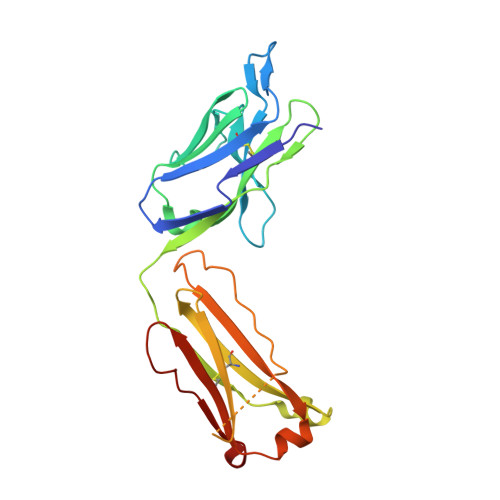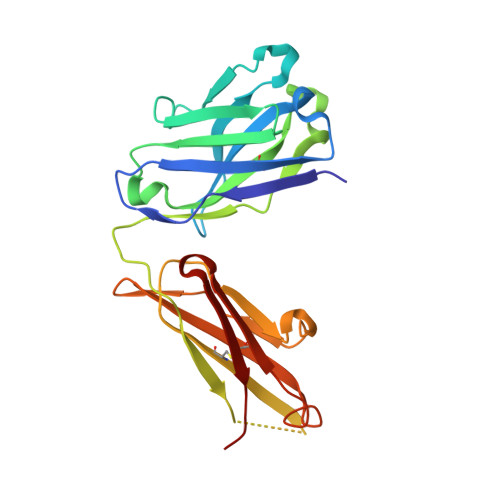A Common NH53K Mutation in the Combining Site of Antibodies Raised against Chlamydial LPS Glycoconjugates Significantly Increases Avidity.
Blackler, R.J., Brooks, C.L., Evans, D.W., Brade, L., Kosma, P., Brade, H., Evans, S.V.(2011) Biochemistry 50: 3357-3368
- PubMed: 21405106
- DOI: https://doi.org/10.1021/bi101886v
- Primary Citation of Related Structures:
3OKD, 3OKE, 3OKK, 3OKL, 3OKM, 3OKN, 3OKO - PubMed Abstract:
The crystal structures of the antigen-binding fragment of the murine monoclonal antibody (mAb) S25-39 in the presence of several antigens representing chlamydial lipopolysaccharide (LPS) epitopes based on the bacterial sugar 3-deoxy-α-D-manno-oct-2-ulosonic acid (Kdo) have been determined at resolutions from 2.4 to 1.8 Å. The antigen-binding site of this antibody differs from the well-characterized antibody S25-2 by a single mutation away from the germline of asparagine H53 to lysine, yet this one mutation results in a significant increase in avidity across a range of antigens. A comparison of the two antibody structures reveals that the mutated Lys H53 forms additional hydrogen bonds and/or charged-residue interactions with the second Kdo residue of every antigen having two or more carbohydrate residues. Significantly, the NH53K mutation results from a single nucleotide substitution in the germline sequence common among a panel of antibodies raised against glycoconjugates containing carbohydrate epitopes of chlamydial LPS. Like S25-2, S25-39 displays significant induced fit of complementarity determining region (CDR) H3 upon antigen binding, with the unliganded structure possessing a conformation distinct from those reported earlier for S25-2. The four different observed conformations for CDR H3 suggest that this CDR has evolved to exploit the recognition potential of a flexible loop while minimizing the associated entropic penalties of binding by adopting a limited number of ordered conformations in the unliganded state. These observations reveal strategies evolved to balance adaptability and specificity in the germline antibody response to carbohydrate antigens.
Organizational Affiliation:
Department of Biochemistry and Microbiology, University of Victoria , Victoria, BC V8P 3P6, Canada.















